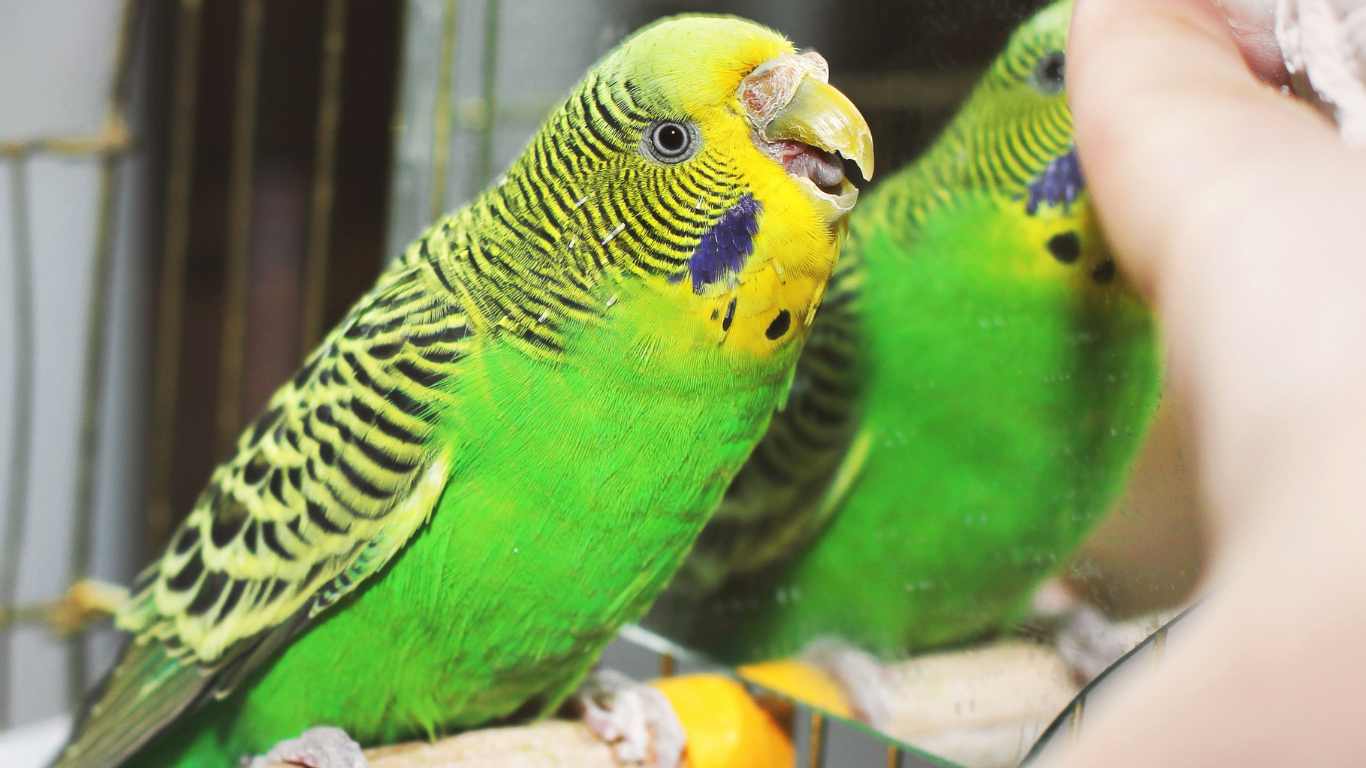Parakeets, like all birds, have innate behaviors that are deeply ingrained due to their wild ancestry. These behaviors include biting, which served as a defense mechanism in the wild to protect themselves and their territory.
Communication through Biting
Biting can also be a form of communication for parakeets. They use their beaks to interact with their environment and even with other parakeets. If your parakeet is biting you gently, it might be trying to communicate or explore.
Reasons for Biting
Territorial Instincts
Parakeets are territorial creatures by nature. They may perceive you as an intruder in their space, especially if they still need to form a strong bond with you.
Fear and Stress
Fear and stress can trigger biting behavior in parakeets. They may respond defensively if they are startled by a new surroundings, rapid movement, or loud noise.
Playful Exploration
Sometimes, parakeets nibble as a way of exploring their surroundings. They use their beaks to investigate objects, including your fingers.
Hormonal Changes
Hormonal changes, particularly during breeding seasons, can make parakeets more irritable and prone to biting. You must be aware of these hormonal shifts and adjust your interaction accordingly.
Creating a Positive Bond
Socialization
To prevent biting, focus on building a strong bond with your parakeet. To gain the animal’s trust, you should spend time near their enclosure, speak softly to them, and feed them snacks.
Gentle Handling
When interacting with your parakeet, use slow and gentle movements. Extend your finger for them to step onto, rather than reaching in abruptly.
Training and Positive Reinforcement
Training your parakeet through positive reinforcement can help curb biting behavior. If they are well-behaved, you should praise them with tasty goodies; nevertheless, you should not reward biting.
Addressing Biting Behavior
Identifying Triggers
Observe your parakeet’s body language and the situations in which biting occurs. Identifying triggers can help you avoid situations that make them feel threatened.
Gradual Desensitization
If your parakeet has a history of biting, work on desensitization. Gradually expose them to situations that trigger biting, rewarding them when they remain calm.
Providing Distractions
Offering toys and activities that engage your parakeet’s attention can redirect their focus from biting. Mental stimulation can help alleviate boredom-related biting.
Consulting an Avian Vet
If biting behavior persists or intensifies, consult an avian veterinarian. Underlying health issues can contribute to changes in behavior.
Conclusion
Understanding why your parakeet is biting is the first step in addressing this behavior. You can create a harmonious relationship with your feathered companion by building trust, recognizing triggers, and employing positive reinforcement.
FAQs:
Q1: How do I know if my parakeet is biting out of fear?
A: Fearful biting is often accompanied by fluffed feathers, wide eyes, and a tense posture. They may also emit distress calls.
Q2: Can hormonal changes really affect my parakeet’s behavior?
A: Yes, hormonal shifts during breeding seasons can impact their behavior, making them more aggressive or territorial.
Q3: Should I avoid interacting with my parakeet during molting?
A: Parakeets may be more sensitive during molting due to feather loss. Minimize handling to reduce stress.
Q4: Can I train my parakeet not to bite at all?
A: Although it is difficult to completely eliminate biting, persistent training can dramatically lower both the number of biting occurrences and the severity of those incidents.
Q5: What are some signs that my parakeet is comfortable and happy?
A: Relaxed body language, singing, playful behaviors, and stepping onto your hand willingly indicate that your parakeet is content.
